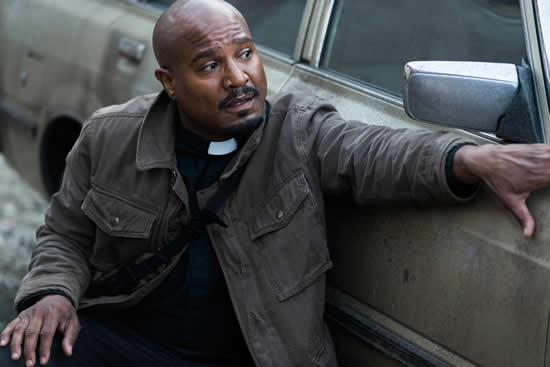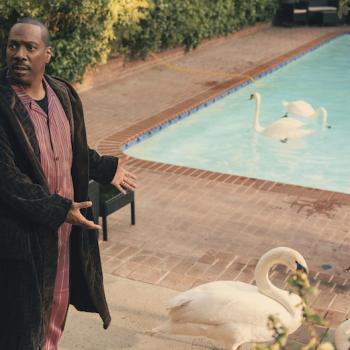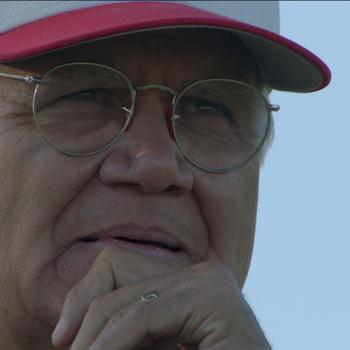
Seth Gilliam as Gabriel in The Walking Dead, photo courtesy AMC
‘It’s Not All About Me’
It’s not that Rick lacks any mercy. He’s been an effective leader and a mostly sympathetic character because of his moral core for lo these many seasons. His pre-battle speech is undergirded with his basic sense of dignity.
“We have to keep our faith in each other,” he tells his followers. He tells Gabriel, a priest among the group, that what they’re building isn’t about him, but about them. All of them. Gabriel agrees, but reminds Rick that it’s because Rick’s selfless attitude made it possible.
But Rick’s desire to kill Negan—his righteous wrath–threatens to undercut that decency. With Negan pinned behind a metal barrier, Rick continues to shoot at him, even as it threatens to upend his carefully planned attack. Finally Gabriel pulls him away, reminding him, “It’s not about you, remember?”
That’s the thing about wrath, righteous or no: It comes from a place of selfishness. It’s about the me—the hurt I feel and the justice I’ll exact. Vengeance is mine, sayeth the Rick. And that’s not a healthy place to be.
But mercy is inherently about the we. We look outside ourselves to help somebody else. Mercy is the antithesis of selfishness.
As mentioned, mercy is rarely rewarded in The Walking Dead. Even in its titular episode, when Gabriel shows mercy on Hilltop’s ratfink leader, Gregory, and tries to rescue him from an invading zombie horde, Gregory stays true to his ratfink ways. He steals Gabriel’s car and leaves the priest to the much smaller mercies of the zombies and Negan himself. It certainly didn’t look good for Gabriel as the episode ends.
But in a world filled with zombies and monsters, The Walking Dead suggests that perhaps our real hope lies in mercy. Togetherness. Common decency. Faith—sometimes in God, but always in each other and in a better future.
Carl says that hope isn’t enough to save someone. Wrath certainly isn’t the answer. You need mercy and compassion and grace to make it through even the toughest of tough times. Mercy can feel naïve, but like most of God’s most beautiful gifts, it’s more powerful than it looks. And that’s a good thing for us to remember, too.













